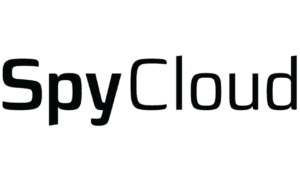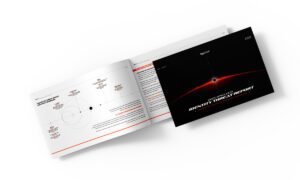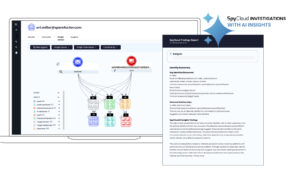You may not know exactly what “Malware” means, but you have an intuition that it is not a good thing. And it is that, although you are not aware of it, the term already sends you signals: “Mal” speaks to you of problems and “ware” speaks to you of technology.
Malware is a code (programming) that is installed on your computer in order to obtain information or take control of the computer itself.
So what’s the difference with a virus? A computer virus is a type of malware.
malware types
Computer virus
It is the most primitive malware. Its main function is to affect the team, destroy it if necessary. It spreads due to human actions (installing software, sharing the software, sending an email, etc).
Due to its difficult propagation and the ease of being detected and eliminated, viruses have been almost extinct to date.
computer worm
It has the same characteristics as a virus, but its propagation occurs automatically, accessing your contact books, reading the addresses of other users in your mail software, etc… Once the objective is achieved, send friendly messages using your identity so that it infects those who open it.
They are not particularly destructive to your system, so it is difficult to detect the infection.
Infected computers are willing to execute massive spam actions to block mail servers or carry out DDoS attacks (blocking servers due to denial of service, receiving millions of requests that they are unable to attend to in a short space of time).
Do you want to contact a specialist in malware and computer security?
trojan
The main characteristic of these systems is that their propagation is done through methods that are presented in a “friendly” way: free software, emails with gifts or great benefits, mailings from friends, acquaintances or clients, etc…
The main goal of this malware is to take control of the system to earn some profit. Usually
- Bank or mail passwords
- credit card details
- Sensitive information contained therein.
- Pictures from your camera
Or, if they are less aggressive, direct Internet traffic to interested websites.
Spyware
Spyware is a type of malware that specifically seeks to obtain data by spying on the user. By its very nature, it is silent, it seeks to remain unnoticed, in order to obtain the greatest amount of information and make use of it without being detected.
usually investigate.
Like Trojan malware, it infects via spam emails or through downloads.
adware
Adware is the least aggressive of the malware since it does not seek to control your computer so much as to present you with advertising while you browse or work with your computer.
In many cases, it makes modifications aimed at impersonating websites and redirecting traffic to the pages that interest it, since the hacker makes a profit from brand views.
It is usually associated with other software, installed together with it.
Ransomware
This is the malware that has the greatest presence in the media and probably the most dangerous today.
Ransomware is formed from the words “ransom” (ransom) and “ware”, software termination. Once the computer is infected, the malware requests the delivery of a financial amount to return control of the computer to the owner.
This malware comes in two forms: those that simply lock the computer and others that encrypt the contents of the drives so that the owner cannot access them until they pay a large ransom.
Scareware
The most sophisticated malware today. By impersonating legal trademarks, it sends messages to the user using pop-up windows, indicating that their software has been infected by powerful malware.
To get rid of the fictitious malware (early launch anti malware), you need to purchase antivirus software which, once downloaded, is actually the malware that will steal your data (in addition to the credit card details you entered to make the purchase).
malware attack
Prevent malware infection. (Early launch anti malware protection)
use common sense.
No one makes great gifts for forwarding a message, for entering a website, etc. If you please relook that promises you gifts or great benefits, don’t believe it, no matter how tempting it may be: delete it.
Antiviruses are the best prevention.
Indeed. Although they are not infallible, an up-to-date antivirus will be the best guarantee that, when the hacker is so skilled that it confuses common sense, we will find ourselves protected.
- Get away from Cracks for legal software.
- Illegal copies of software.
- Software downloads on unofficial pages.
- Keep your software up to date.
Always keep your operating system and the applications you use up to date, since manufacturers review possible vulnerabilities found and fix them in each release.
Acquire an automatic copy system.
Usually, these automatic copy services include the detection of possible infections in order not to make copies of the infected system that could replace clean copies.



































